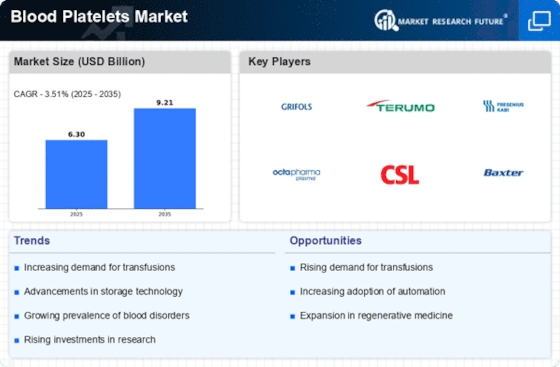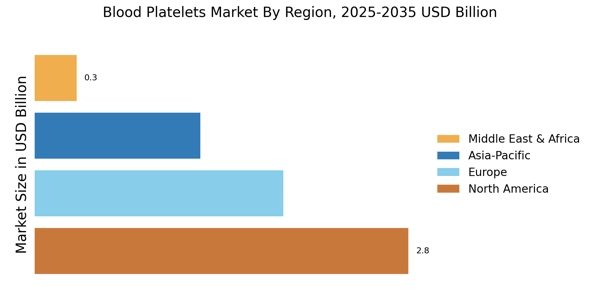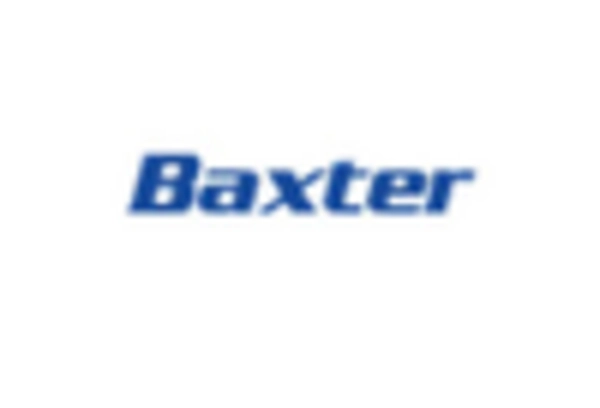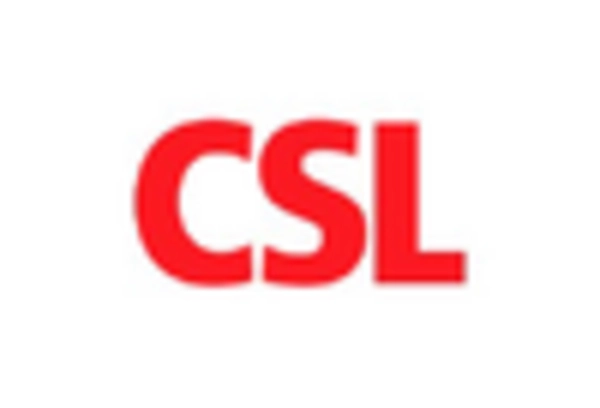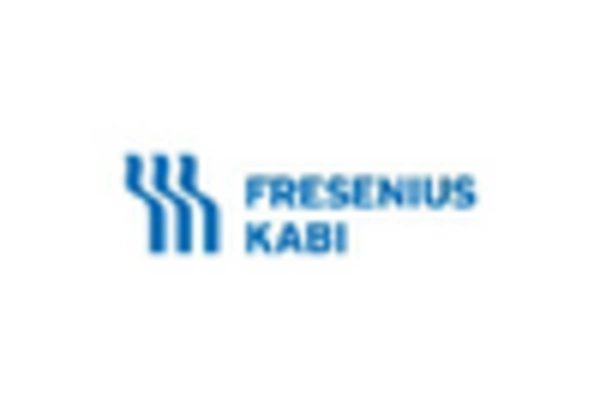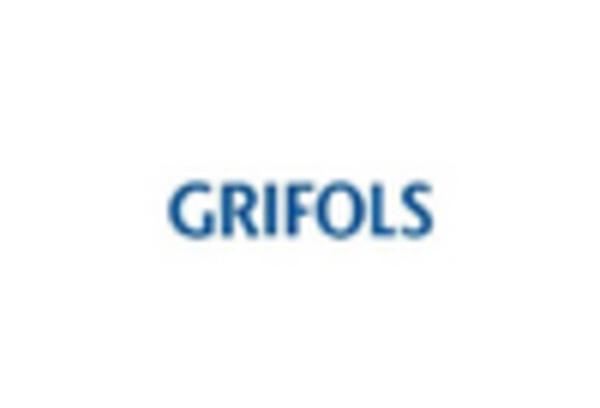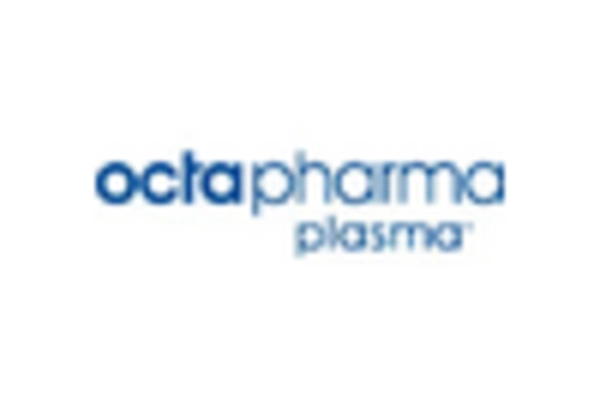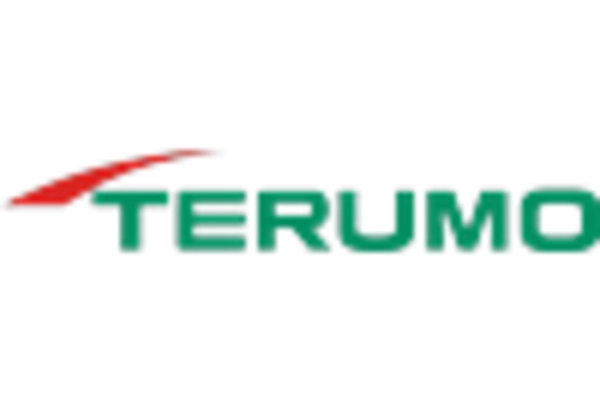Increasing Geriatric Population
The Blood Platelets Market is experiencing a surge in demand due to the growing geriatric population. As individuals age, they are more susceptible to various health conditions that may require platelet transfusions, such as chronic diseases and surgical procedures. Data suggests that the proportion of elderly individuals is steadily increasing, leading to a higher incidence of health complications that necessitate medical interventions. This demographic shift is prompting healthcare systems to prepare for an increased demand for blood products, including platelets. Consequently, the Blood Platelets Market is likely to expand as healthcare providers adapt to the needs of an aging population, ensuring that adequate platelet supplies are available for those who require them.
Growing Awareness of Blood Donation
The Blood Platelets Market is benefiting from heightened awareness regarding the importance of blood donation. Campaigns aimed at educating the public about the critical need for blood and platelet donations have gained traction, leading to increased donor participation. Data indicates that regions with active awareness programs have seen a notable rise in blood donations, which directly impacts the availability of platelets for transfusions. This trend is particularly relevant as healthcare providers strive to maintain adequate supplies for patients in need. Moreover, partnerships between hospitals and community organizations are fostering a culture of giving, which may further enhance the Blood Platelets Market. As more individuals recognize the life-saving potential of their contributions, the supply of blood platelets is likely to stabilize, supporting ongoing treatment needs.
Rising Incidence of Hematological Disorders
The Blood Platelets Market is experiencing growth due to the increasing prevalence of hematological disorders such as leukemia and thrombocytopenia. These conditions often necessitate platelet transfusions, thereby driving demand for blood platelets. According to recent data, the incidence of leukemia has been on the rise, with thousands of new cases reported annually. This trend suggests a sustained need for platelet products, as patients undergoing treatment frequently require transfusions to manage their conditions. Furthermore, advancements in diagnostic techniques have led to earlier detection of these disorders, which may contribute to an increase in treatment rates and, consequently, a higher demand for blood platelets. As healthcare systems adapt to these challenges, the Blood Platelets Market is likely to expand to meet the needs of affected patients.
Regulatory Support for Blood Safety Standards
The Blood Platelets Market is positively influenced by stringent regulatory frameworks that ensure the safety and quality of blood products. Regulatory bodies are continuously updating guidelines to enhance the safety of blood collection, processing, and transfusion practices. These regulations not only protect patients but also instill confidence in the blood donation process. Compliance with these standards often requires blood banks and healthcare facilities to invest in better technologies and training, which can lead to improved platelet quality. As a result, the Blood Platelets Market is likely to see growth as facilities strive to meet these evolving standards. Furthermore, the emphasis on safety may encourage more individuals to donate, thereby increasing the overall supply of platelets available for transfusions.
Technological Innovations in Blood Collection
Technological advancements in blood collection and processing are significantly influencing the Blood Platelets Market. Innovations such as automated blood collection systems and improved storage techniques enhance the efficiency and safety of platelet transfusions. For instance, the introduction of apheresis technology allows for the selective collection of platelets, which can be more effective than traditional methods. This technology not only increases the yield of platelets but also reduces the risk of contamination. As hospitals and blood banks adopt these advanced technologies, the overall quality of platelet products improves, potentially leading to higher patient outcomes. The integration of these innovations into clinical practice is expected to bolster the Blood Platelets Market, as healthcare providers seek to optimize their transfusion protocols.


